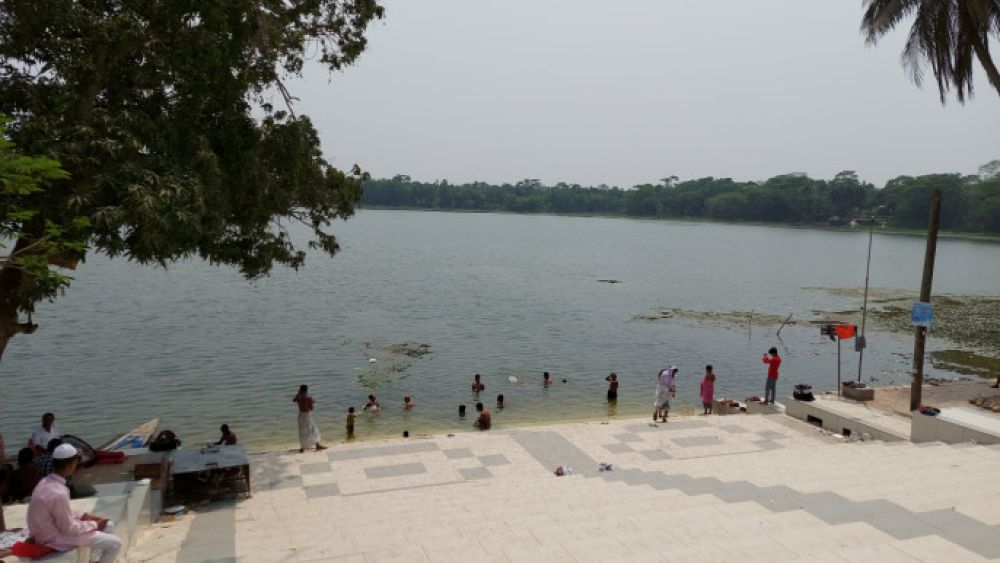

The Khan Jahan Ali's Tank, located in Khulna, Bangladesh, is not only a significant historic reservoir but also a revered site associated with the renowned Muslim Sufi saint, Khan Jahan Ali. The history of tourism concerning this site is intrinsically linked to the history of the saint and his monumental contributions to the region.
The tank, known locally as the Thakur Dighi, is one of the many tanks excavated during the 15th century by the Islamic preacher and ruler, Khan Jahan Ali. He is credited with erecting a number of mosques, tanks, roads, and bridges in the region, fostering the development of a thriving settlement during his reign. The Thakur Dighi, in particular, was created to serve as a source of water for the local population, for both consumption and agricultural purposes. It has since become a focal point around which the local community gathers, signifying its lasting historical and cultural importance.
Tourism at Khan Jahan Ali's Tank began to gain traction as early as the 1950s when the site became recognized as an important historical and religious landmark. The tank, alongside the adjacent Khan Jahan Ali's Mazar (tomb), started to attract visitors from around the country. As the site gained prominence, the local government initiated efforts to preserve and promote this historical landmark, laying down the foundation for sustainable tourism in the area.
In recent years, there has been a surge in the development of infrastructure around Khan Jahan Ali's Tank to cater to the growing number of visitors. The region has seen the establishment of visitor centers, improved transportation links, and better accommodation facilities. Moreover, the site has become a gathering spot during religious festivities, particularly during the Urs, a festival marking the death anniversary of Khan Jahan Ali, which draws thousands of pilgrims and tourists alike.
The integration of technology, through virtual tours and informative websites, has also made the historical tank more accessible to a global audience. Another emerging trend is the growth of eco-tourism in the surrounding areas, as travelers are increasingly interested in the diverse wildlife and natural beauty that Knulna has to offer.
The future of tourism at Khan Jahan Ali's Tank appears promising. Efforts are underway to include the site into larger regional tourism initiatives, emphasizing cultural heritage tours that highlight the rich history of Khulna and the broader Sundarbans area. The local government's commitment to preserving the sanctity of the tank while also improving tourist amenities ensures that Khan Jahan Ali's Tank remains a treasured destination for generations to come.